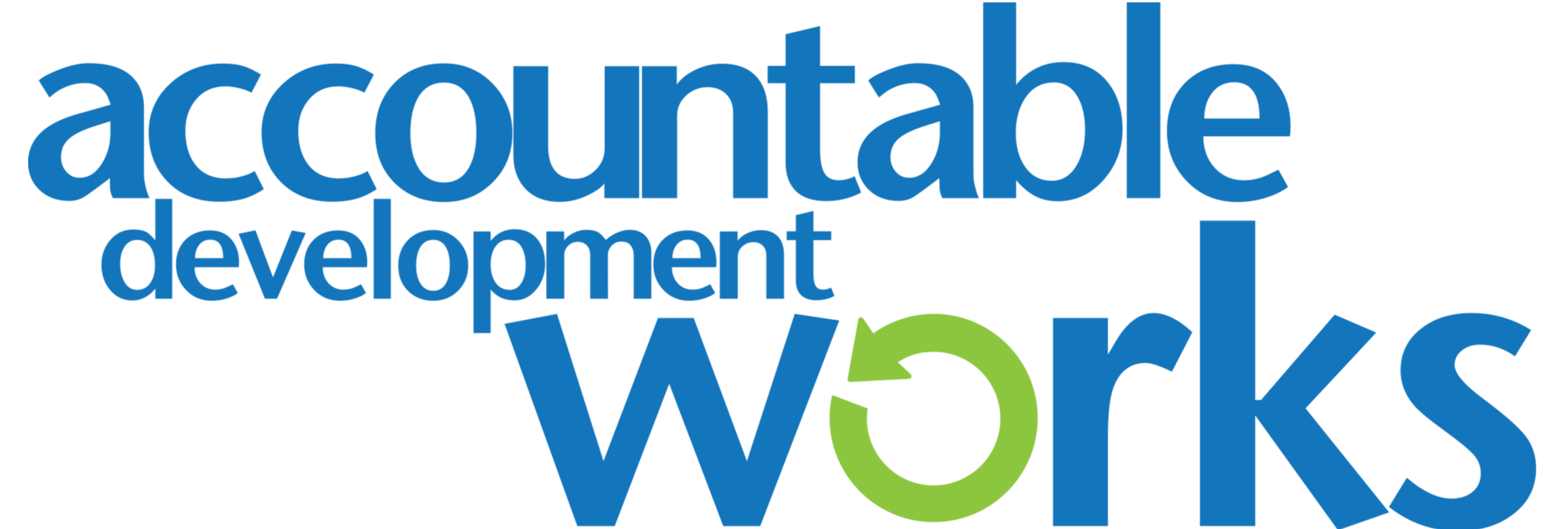
Established in 2005, Accountable Development Works (ADW) is a charitable organization that currently supports 4 separate Non-Governmental Organizations (NGOs) in Africa. Each project/NGO has a distinct fundraising and support committee in Canada that builds a community of support around that specific project. Any donations provided to that support committee will only be used for the work and administration of that related overseas project.
This structure reflects ADW’s understanding of the importance of respect for local autonomy, described below in the ‘Accountability’ section. While big-picture universal policies are in place, each project translates those into their particular context.
ADW is entirely voluntary, with a board comprised of project chairs and relevant experts that guide the organization as a whole. The board meets regularly, approximately 3-4 times each year. This ensures efficient and adherence regarding Canada Revenue Agency (CRA) regulations, Canadian and overseas policies, institutional fundraising, and support and accountability. Annual General Meetings are open to anyone interested in ADW.
ADW reports to funders and the CRA with an audited financial statement, available on our website. A charitable tax receipt is issued for donations $10 and over. ADW also provides an annual independent audit, leadership and support to each project as well as accessing funding from the Manitoba Council for International Development.

The focus on Accountability comes from our organizations’ experience with the challenges of development, as well as the vigorous contemporary debate about what development itself should mean. ADW values local leadership and initiatives, working hard to ensure that the goals of the African leaders are incorporated into the fundraising and objectives of the Canadian body.
There is some contention about what “global development” means amongst governments, NGOs, and regular people. For ADW, any good definition of this term should appeal to a sense of equality. If “global development” entails interventions into the lives of the vulnerable and the impoverished, it is surely because there is something fundamentally wrong with a world where opportunities, freedoms and physical conditions are determined differently depending on where one is born. Just as race or gender should not determine one’s lot in life, neither should nationality. So, for ADW, the basic moral notion that people everywhere are equal and deserve equal opportunities, freedoms and rights regardless of nationality, is what underlies our vision of “global development.” It also gives high-income countries a reason to be concerned about supporting low- and middle-income countries.
This notion of everyone being equal is standard amongst humanitarian and development organizations. However, equality as an ethical motive also needs to inform the way we operate when trying to achieve it. This is to say that if we really believe that all people everywhere are of equal human worth, then it must also be reflected in our organizations and efforts.
Accountable Development Works was started because our members realized that equality is too often referenced as a motive for action but then quickly forgotten as organizations and people from supporting countries exert a top-down model of planning, often leaving out of the decision-making process the people they are trying to help. In an approach well accepted by progressive development organizations, people in low- and middle-income countries are involved in the decision making process every step of the way.
The members of ADW operate on the basis that development must reflect its underlying moral inspiration of human equality by involving everyone – men, women, children and especially the people in the countries we partner with – as staff, volunteers, stakeholders and decision-makers. ADW projects are therefore made initially and constantly accountable to beneficiaries (as well as donors) through work with inclusive community-based organizations and their locally-designed and driven projects.

